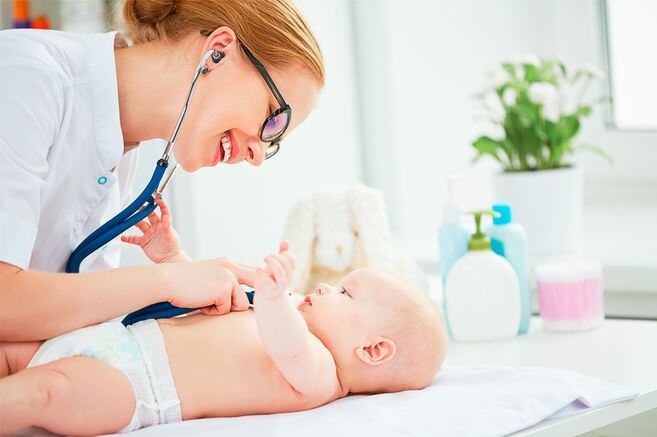
It does not matter that a child seems to be in good health; Regular appointments with the pediatrician are important as a measure of evaluation, prevention, identification of possible pathologies and diagnosis and treatment.
Colds, diarrhea, colic, respiratory and digestive difficulties, abdominal pain, fractures … There are many reasons why parents go with their children to emergency or pediatric consultations, related to diseases, ailments, poisons, blows or injuries, among other reasons.
But do they have the same mood when the child is healthy? Some dads expect their children to have discomfort or fall to go to the doctor. And, although it is not necessary to make appointments all the time, it is necessary to participate in regular check-ups to determine your health.
You may be interested in reading: Children’s question Why do they ask so much?
It is the best alternative to guarantee the healthy growth and development of the child, but also to learn recommendations on how to prevent diseases, promote a lifestyle that promotes the well-being of children and, finally, the discovery of pathologies. and comprehensive follow-up of chronic disease.
“Pediatric check-ups are important because they help us prevent disease in children by assessing them and by an early approach to any change in their health,” says Sandra Pabón *, a pediatrician at the Sanitas University Foundation.
Although pediatric appointments are essential at all stages of childhood or adolescence, they are more perennial in infants and in the early years of life, when growth is constant and there are rapid changes in their development, which should be monitored by their pediatricians.
At each check-up, the specialist will do a complete physical examination of your child. Up to approximately 6 months of age, it will assess issues such as weight gain, height gain, psychomotor development, head circumference, sight, hearing, breastfeeding and the introduction of complementary foods, compliance with the vaccination schedule and the prevention and treatment of diseases, among others.
The American Academy of Pediatrics (AAP) recommends that the first visit to the pediatrician after birth be made in the next 3 to 5 days, and later, if nothing extraordinary happens, one month, at 2, 4, 6, 9 months and when the year ends.
You can read: Keys to taking care of your personal hygiene during pregnancy
Subsequently, according to AAP, it is recommended to take him to appointments at 15 and 18 months, 2 and 2 and a half years; after that, every year until adolescence. Keep in mind that this scheme is not a straitjacket and that the regularity with which they participate will depend on the child’s health, their specific needs and the decisions of the attending physician.
Controls are useful because they cover more than one health and monitoring related to your child’s growth and development, taking into account progress and countermeasures. In addition, they become social spaces to learn about prevention, nutrition and safety guidelines at home and in the educational center.
It is also a great opportunity to establish a direct and, above all, trusting relationship between your pediatrician, you and your child, to work in coordination for the optimal physical, mental and social well-being of your little one.
This confidence and clarity allow the pediatrician to know the personal and family history, which will facilitate a more accurate diagnosis after a thorough examination. Dr. Pabón states that “pediatric control assesses growth, development and feeding and sleep patterns.”
In addition, it may include taking vital signs, auscultation, heart sounds, assessing various body systems, reflexes, formulating laboratory tests, examinations and authorizing appointments with specialists in areas such as optometry, ophthalmology, otorhinolaryngology or dentistry, recommendations on physical activity and prevention. accidents, for example.
Memory is treacherous and for this reason it is essential to write down any questions and doubts you have at meetings and, without pain or fear, consult your pediatrician everything you want to know about the health and general well-being of your little one.
* www.sandrapabonpediatra.com.co